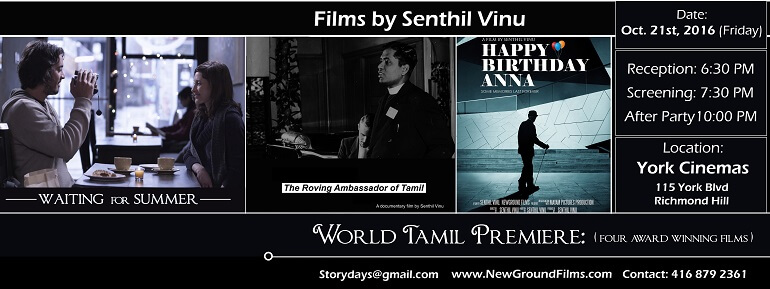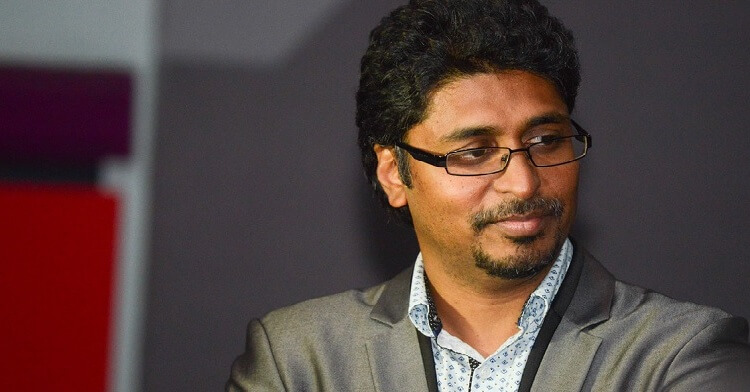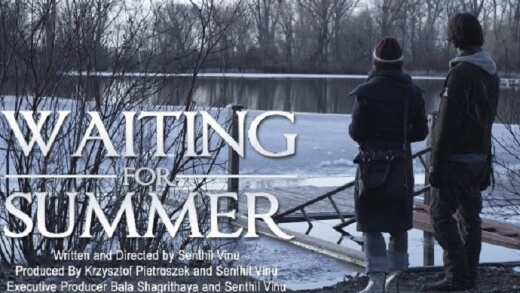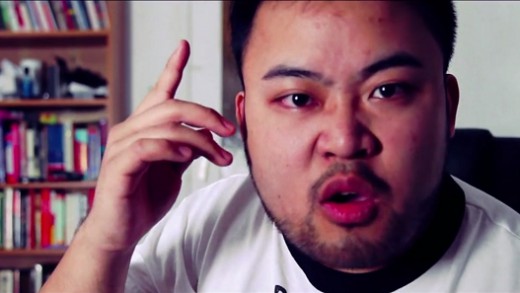Editor’s Note: This interview was first published on April 9, 2012.
Since the time of publication Senthil has gone on to develop several feature films and volunteer his time to support other artists by collaborating on projects, through mentorship and serving on the jury of the YDocs Program for the Center for Leadership and Innovation (CFLI). YDocs is a Tamil Youth Documentary Festival, showcasing and recognizing film making by young people under the age of 18. Presently, Senthil is actively raising finance and confirming actors and crews for his next film, and looking forward to beginning production in early 2017.
On Friday, October 21st he will be hosting a screening of his award winning English and Tamil films: Waiting for Summer, Thani Nayagam Adigal: The Roving Ambassador of Tamil, Happy Birthday Anna and The Shooting Star. The event will get underway at 6:30pm with a reception, followed by the screenings and after-party. Click here to learn more about the event and to purchase your tickets.

How does an IT professional become a full-time filmmaker? In the hopes that they could divert their son from answering this question, Senthil Vinu’s parents encouraged him to pursue a professional degree before he took a crack at pursuing film. But it would take more than a degree, and the tough independent film industry to sway him. TC had the chance to connect with Senthil to find out what propelled him from Coimbatore to Toronto, where his sole pursuit is film making.
TamilCulture: Tell us a bit about yourself.
Senthil Vinu: I was born in Coimbatore in Southern India—that’s where I grew up pretty much. I lived for a really short amount of time in Chennai before I moved to Barbados where I worked for a bit. Back then I was doing a little bit of IT work, and then I moved to the States as part of my IT career and that’s where I started making films. And from there I moved to Canada, to Toronto.
TC: How did you start pursuing film?
SV: I knew I wanted to make films before I got into IT but my parents were dead against it. Not pursuing the career per se, but going into film school. They asked me to get a professional degree in India and then they said do whatever you want after you get the degree, so you have the professional degree as something to fall back on. I think they probably thought that I would forget about it but I was very serious about it.
TC: What inspired you to get into the film industry?
SV: I could do a lot of different things and had a lot of interests. I had to really ask myself where I could put my talents to use. It was actually a conscious decision. I wasn’t one of those guys that was like “I love film to death”. Over time I just realized that a director is a person that is a jack of all trades.
There is only one way to get into the Chennai industry, though. You have to go work as an assistant director. But I wanted to chart a different course for myself and that’s what started taking me in a different direction – thinking about making a film in an industry where there would be room for the types of films I wanted to make.
TC: How did you start gaining experience in film?
SV: I’m mostly self-taught. I had an instinct for telling stories. I shared some of the stories I had written with people I knew and generally got positive feedback. And then I shared the same stories with some professionals that I knew, and they all told me it was bad.
To gain experience and develop my craft I got a digital camcorder, and edited everything on my computer. I just started shooting stuff, making videos for people and getting books and reading up about it. Gradually I transitioned into the industry.
When I made my first short film, and it played in the Asian Film Festival of Dallas in 2003, I realized how serious you have to be to actually make this count. It’s not just about having the talent and the creative instinct. It’s a lot of work and commitment. I decided I really needed to further my career, and I enrolled in a 2 year program in screen writing at UCLA. That helped me validate two things—that I had enough talent to make it in the industry, I just had to put in the time to pursue what I wanted, and it allowed me to develop my craft and made me confident because of that.
TC: Who supported you when you started out filmmaking?
SV: No one. I started budgeting my savings and I allocated a certain amount of funds each year to film and made sure I spent it on that. At the same time, I didn’t find too many obstacles in terms of money. There were other problems—the perceptions people have of what you can do, or cultural prejudice sometimes. Those kinds of things were tougher to crack. At the end of the day you can write the story, and plan everything without incurring too many costs. Once it’s on paper it’s about showing it to the people who could see the vision and help me create it. My first feature film – Waiting For Summer – was supported by many such people, including my executive producer Bala Shagrithaya.
TC: What influences or inspires you?
SV: I’m usually inspired by other filmmakers or movies that I’ve seen. Sometimes people that I meet, and things that happen in my life or a friend’s life spark an idea. In terms of Tamil films the biggest influences were Mahendran, and Sridhar, as well as Barathirarajah, Balachander, and Mani Ratnam. They all have a unique way of approaching their stories.
I didn’t like Tamil movies until my early 20s, though. When I was really young, I couldn’t sit through a Tamil movie. I couldn’t handle the drama and sentimentality. It was once I decided to pursue the craft, that I decided I had to know the masters and watched a lot of films that I hadn’t seen. I felt this was an important part of retaining my Tamil sensibility regardless of where I was working on my films.
The biggest influence from the Tamil film industry for me is the music of Illayaraja. Music in general is the biggest influence for me, across cultures. The way I approach filmmaking, the stories, and the emotions, are very influenced by it. I’m more interested in evoking emotions through the films than appealing to anything else from the audience.
TC: Why do you believe it’s important to bring a Tamil sensibility to your films?
SV: I believe very strongly in not rejecting anything you have gone through or anything that impacts your experiences —including your culture or language. I believe there are a lot of things in Tamil culture that have strong roots. To me it would be foolish to reject all of that and not use it to relate to new experiences.
I have seen movies from Italian, French, Japanese filmmakers and I can put my finger on certain things that seemed to be an Italian, or French, or Japanese sensibility. I feel that there is a Tamil sensibility that Tamil filmmakers have touched on and I don’t want to lose that—I want to shed a different light on this or through this.
TC: What advice would you share with aspiring filmmakers?
SV: It’s not just about talent, because commitment is more important. Talent is significant, but that alone won’t get you there. If you want to pursue it, go for it. If you can’t do something today that makes you happy, what’s the point of today? Why wait? If you want to pursue a career, work on your craft each day, even 15 minutes, and that’ll make you happy. Even if you end up pursuing it 5 years later, at least you’re working toward it. It’s important to get the satisfaction of continuing to do something that makes you happy.
TC: What are your goals for your career?
SV: I don’t want to measure my success by some milestone—I may or may not get it. There are so many things that are unpredictable and so many things beyond my control. I have a plan, but at the end of the day I am flexible based on my experiences. My goal is not to look toward to that one milestone, but to make sure I give my best every day, to do something in film every day.
Think of it this way–when you’re dancing to a song you love, you’re not really asking yourself “what I am going to get out of this dancing?” You’re just enjoying letting the life come into yourself. And that’s what keeps you going.
Want to know more about Senthil and his films? Get in touch with him via facebook or twitter!
Feature image courtesy of Ninaivukal-Moments of Events.

 Nivethika Thambithurai
Nivethika Thambithurai









